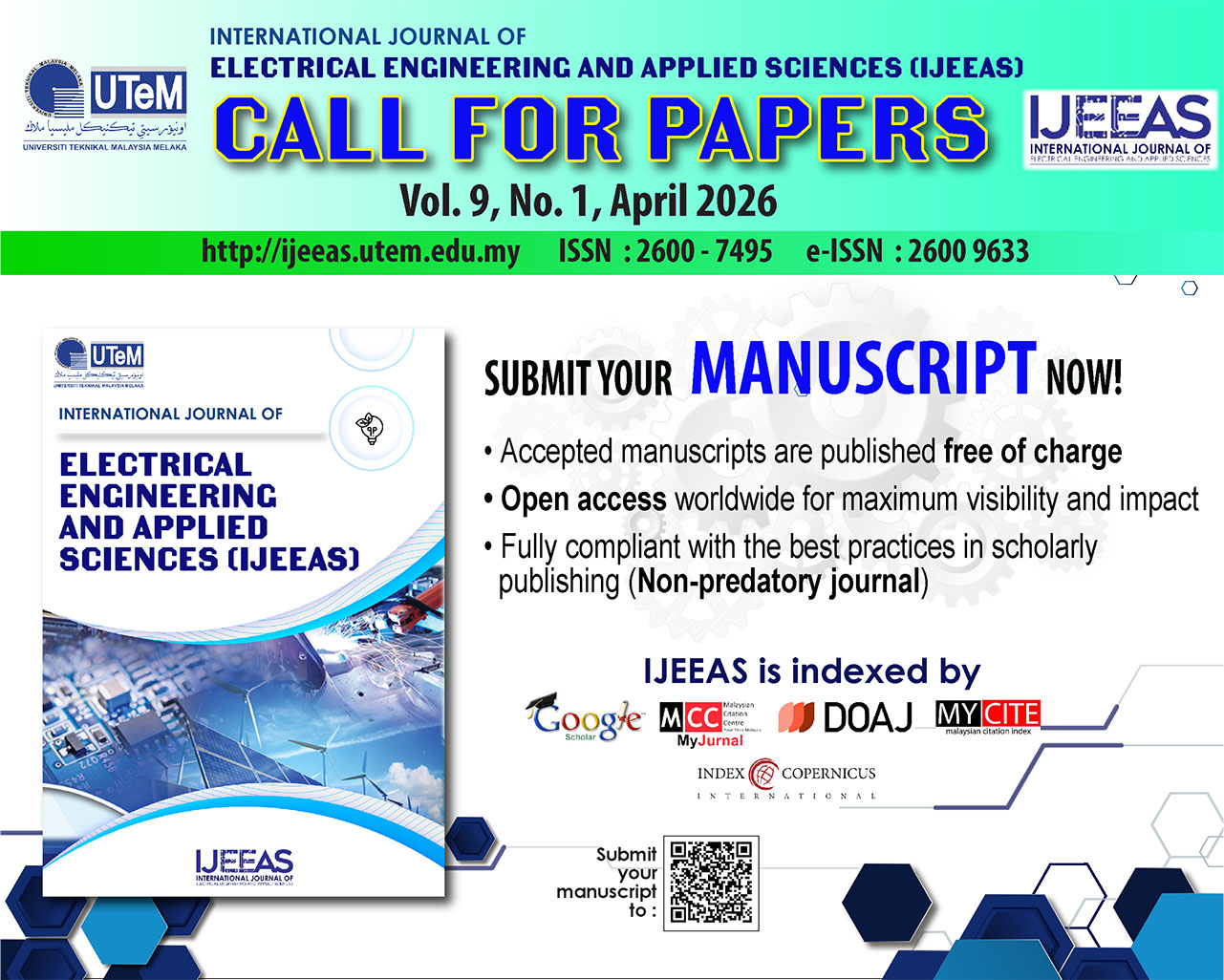ENGINEERING SKILLS: EMPLOYER SATISFACTION AMONG MALAYSIAN GRADUATES ENGINEER.
Abstract
The purpose of this study is to investigate the employers’ satisfaction regard to the skill of engineering graduates. This study use 195 survey questionnaire distributed to the manufacturing senior manager at Melaka, Negeri Sembilan and Pulau Pinang only. Statistical Package for Social Science (SPSS) software version 22.0 have been used to extract the data needed from the survey. From this study, finding indicate that employer are satisfy with the skill equip to the engineering graduates and show that fundamental general skill (FGS) and engineering skills (EgS) are the most important and essential to employer satisfaction. The results from this study offer an important practical implication for engineering graduates to be success in employability. Proper skills a helpful to get employer satisfaction for employability with the necessary skill equip to engineering graduates. It is hope with this data it can be an essential reference for engineering graduates to prepare them self to enter the working environment at today challenging economic situation.Downloads
References
Rao, A. A., Shah, S. S. H., Aziz, J., Jaffari, A. R., Ul-Haq, W. E. I., & Raza, S. N., “Employability in MNCs: Challenge for Graduates”. Interdisciplinary Journal of Contemporary Research in Business. Vol. 3 no. 4, pp. 189-200, 2011.
Yuzainee,M. D, Mohd Zaidi Omar, M. Z., Zaharim, A., Mohamed, A., & Muhamad, N., “Employability Skills Performance Score for Fresh Engineering Graduates in Malaysian Country”. Asian Social Science, Vol. 8 no. 16, pp. 140-145, 2012.
Saleh, H., “Employer Impression as a Moderator Relationship for Employer Satisfaction with Engineering Graduate Skill at Malaysia Manufacturing Industry”. International Journal of Human and Technology Interaction, Vol. 3, no. 1, pp. 83-86, 2019.
Saleh, H., “Relationship of technology impact on manufacturing employees’ performance: A case study at Kedah, Malaysia”. Advanced Science Letters, Vol. 24, no. 7, pp. 694-697, 2018.
Saleh, H. “Implementation of the green advertising media (GAM) to increase product sale volume (PSV) in Malaysia product sale market”. Proceeding of the 26st International Joint scientific Conference on Economic and Social Development-“Building Resilient Society”. Zagreb: Economic and social development. pp. 34-40, 2017.
Saleh, H., Aman,O., Feisal, A.F.M., Wahjono, S.I. “Work-life Balance (WLB) relationship with employees satisfaction: An Evidence from Malaysia Higher Education Institution”. International of Science Commerce and Humanities, vol. 3, no. 2, pp. 50-60, 2015.
Kalafsky, R., “Workforce Shortage in the Manufacturing Sector, Evidence from Charlotte”. Southeastern Geographer. Vol. 48, no. 2, pp. 236 – 252, 2008.
Sahni, M. L., “The Impact of Soft Skill Training Induction Programme on New Enterants”. BVIMR Management Edge. Vol. 4, no. 2, 40 – 47, 2011.
Jackson, D. “An International Profile of Industry-Relevant Competencies and Skill Gaps in Modern Graduates”, International Journal of Management Education. Vol. 8, no. 3, pp. 29-58, 2009.
Yusof, H., Mustapha, R., Mohamad, S., & Bunian, M., “Measurement Model of Employability Skills using Confirmatory Factor Analysis”. Procedia - Social and Behavioural Sciences, vol. 56, pp. 348-356, 2012.
Alena, Y. T., Chew, E., & Kalavally, V., “The expectation gap for engineering field in Malaysia in the 21st century”. Emerald Publishing Limited. Vol. 25, no. 2, pp. 131-138, 2017.
Bloom, A., & Saeki, H. “Employability and Skill sets of Newly Graduated Engineers in India: A Study”. The IUP Journal of Soft Skills, vol. 6, no. 4, pp. 7-50, 2012.
Shaymalee, M, M, G, V., Wickramasingle, W. M. V. S. K., & Dissanayke, S. “Comparative Study on Employability Skills of Engineering Graduates of Different Disciplines”. International Journal of Education and Information Technologies, vol. 4, no. 7, 170-177, 2013.
Husain, M, Y., Mokhtar, S, B., Ahmad, A, A., & Mustapha, R. “Importance of Employability Skills from Employers Perspective”. Procedia Social and Behavioural Sciences, vol. 7, pp. 430-438, 2010.
Sheppard, S., Colby, A., Macatangay, K., & Sullivan, W. “What is Engineering Practice?” International Journal Engineering Education, vol. 22, no.3 ,pp. 429-438, 2006.
Shoenfelt, E. L., Stone, N. J., & Kottke, J. L. “Internship: An Established Mechanism for Increasing Employability”. Industrial & Organizational Psychology, pp. 24-28, 2013.
Jain, R. & Jain, S. “Conceptualization, Measure Development and Empirical assessment of Career Oriented Attitudes and Employability of Technology Graduates”. Vision, vol. 17, no.2,pp. 143 – 157. 2013.
Asuquo and Inaja “fostering sustainable career development and employability among young people in the changing world of work: Employers perspective”. Procedia – Social and Behavioral Sciences, vol. 84, pp. 142-1499, 2013.
Becker, F. S. “Why don’t young people want to become engineers? Rational reasons for disappointing decisions”, European Journal of Engineering Education, vol. 35, no. 4, pp. 349–366, 2010.
Bianca, K. & Peter, F. “Student Employability profiles engineering”, enhance student employability coordination Team (ESECT), The higher Education Academy. 2004.
Sattar, M., Amnah, R., Rauf, A., & Norhaini, A. “Graduate Employability for Manufacturing Industry”. Procedia - Social and Behavioral Sciences, vol. 102, no. 242–250, 2013.
Cohen, L., Manion, L., & Morrison, K. “Research Methods in Education”, (6th ed.) London and New York, NY Routledge Falmer. 2007.
Downloads
Published
How to Cite
Issue
Section
License
Authors who publish with this journal agree to the following terms:
- Authors retain copyright and grant the journal right of first publication with the work simultaneously licensed under a Creative Commons Attribution License that allows others to share the work with an acknowledgement of the work's authorship and initial publication in this journal.
- Authors are able to enter into separate, additional contractual arrangements for the non-exclusive distribution of the journal's published version of the work (e.g., post it to an institutional repository or publish it in a book), with an acknowledgement of its initial publication in this journal.
- Authors are permitted and encouraged to post their work online (e.g., in institutional repositories or on their website) prior to and during the submission process, as it can lead to productive exchanges, as well as earlier and greater citation of published work (See The Effect of Open Access).







